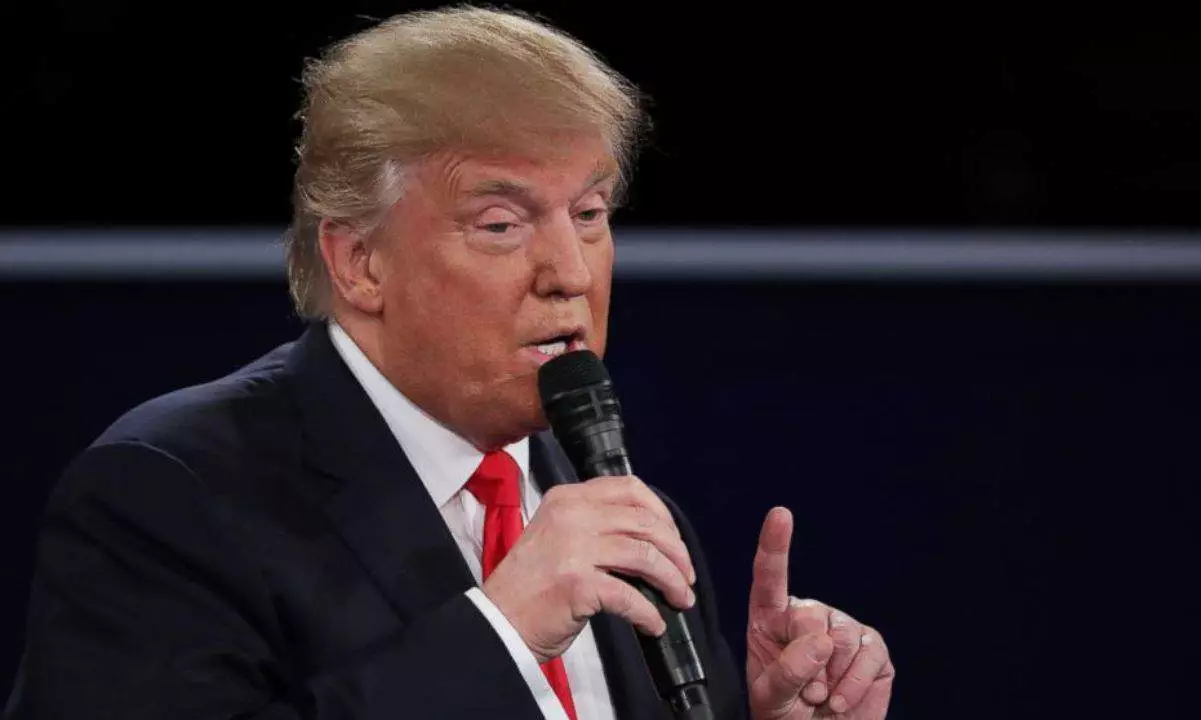In an unprecedented legal twist, President Donald Trump made headlines with his recent pardon of the cryptocurrency exchange BitMEX, alongside its founders. This act, rare in both nature and effect, invites significant commentary and analysis. By pardoning this particular corporation, Trump signified a pivotal shift in the political approach towards cryptocurrency regulation and enforcement in the United States. Operating since 2014, BitMEX has been at the center of legal strife, notably accused of egregious violations of the Bank Secrecy Act. Despite this, steps taken by the Trump administration raise serious questions regarding justice’s integrity and the underlying values influencing such decisions.
In the political domain, this pardon can be seen as a tactical play to capture the rapidly evolving crypto market, which maintains substantial support among libertarian activists and financial independents. Campaigning at the Libertarian Convention prior, Trump pledged to pardon influential figures like Ross Ulbricht. Now, following his BitMEX pardons, speculation swirls around other significant actors in the cryptocurrency landscape, including Sam Bankman-Fried and Changpeng Zhao. This scenario poses a moral dilemma: is the pardoning of individuals associated with corporate greed and illicit operations a genuine commitment to justice, or is it a political tactic designed to capture an emergent voter demographic?
BitMEX and the Legal Quagmire
BitMEX’s conviction for failing to adequately prevent money laundering is a severe indictment of its operational practices. The company’s inability to adhere to anti-money laundering regulations and the subsequent hefty fine of $100 million from the DOJ sends a stark message about compliance in the rapidly diversifying financial ecosystem. However, the pardons act as a veil over a significant legal breach, provoking questions about accountability for corporate entities. Critically, justifying these pardons as rectification of wrongful targeting by the government could dangerously promote a culture where powerful figures are above legal reproach.
Moreover, the comments made by BitMEX co-founder Benjamin Delo, suggesting that the government sought to make an example of the exchange for political purposes, cast a shadow on the integrity of the enforcement system. Is it not evident that corporate players are wielding their influence to amend their narratives when faced with consequences? It raises an alarming possibility: could this pave the way for more leniency towards offenses that erode ethical foundations within corporate structures?
The Ripple Effects on the Crypto Community
The repercussions of Trump’s pardons extend far beyond BitMEX. Notably, the support from crypto community figures, such as Charles Hoskinson, underscores a complex reality where loyalty to personalities can overshadow accountability. The newfound status of the BitMEX founders is unsettling, suggesting that major infractions against regulations can be forgiven with the right political backing. The notion that a corporation can be exonerated quietly raises ethical concerns over the selective enforcement of laws—a reality that could foster an environment resistant to necessary reform within the industry.
Furthermore, speculation surrounding potential pardons for other crypto moguls like Bankman-Fried, who is mired in allegations of serious fraud, exemplifies the tricky landscape of justice versus influence. This proposed leniency toward individuals who have wreaked havoc on investors and the integrity of the financial markets is nothing short of a collective societal dilemma: how do we balance innovation with ethical conduct? The crypto community, once heralded as an agent of transformation in finance, risks regression into an arena dominated by favoritism and opportunism.
Trump’s Strategic Moves and Economic Implications
In the age of economic uncertainty, Trump’s gambits can be interpreted as overtures to an electorate disillusioned with conventional politics. Associating with the often-fractured yet loyal crypto community positions him uniquely within the political spectrum, appealing to a group that lauds financial independence. However, the implications of pardoning individuals involved with significant financial misconduct are fraught with risk and signal a concerning precedent.
If these trends solidify, the future could see increased politicization of financial entities, where hope for a balanced and fair market is buried under layers of political capital. Such developments warrant critical reflection—how many more industries will accept misconduct as long as a powerful patron stands guard?
As speculation mounts over who will be next in line for presidential clemency, one can only anticipate the results of these actions and their lasting impacts on the legalities governing an already turbulent industry. The intertwining of politics and cryptocurrencies may yet lead to a chaotic nexus where integrity is compromised at the altar of political expediency, ensuring a contentious future for governance and regulation in the financial sector.
















Leave a Reply